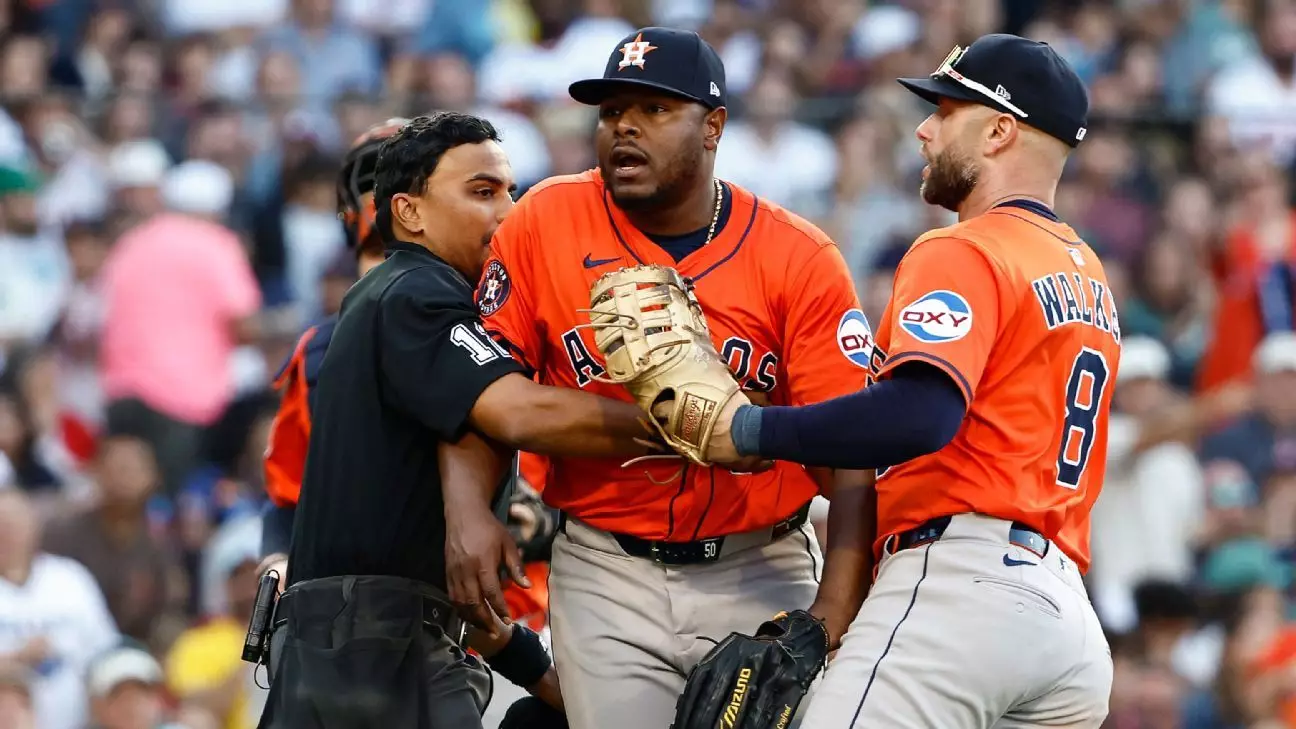In the world of Major League Baseball, few moments are as electrifying as a heated altercation between players and coaches. The recent confrontation between Houston Astros’ reliever Hector Neris and Boston Red Sox third base coach Kyle Hudson exemplifies how quickly emotions can escalate during a game. It reveals the underlying tensions that can spill over when the stakes are high and questions of integrity are at play. These moments often serve as a mirror reflecting the pressures athletes face—where every pitch, every call, and every gesture is scrutinized, sometimes leading to explosive confrontations that momentarily divert focus from the game itself.
The Controversy Surrounding Sign-Stealing Allegations
Central to this incident is the shadow of the historic sign-stealing scandal that has haunted the Astros for years. Despite major disciplinary actions and a tarnished reputation, whispers and suspicions about the Astros allegedly continuing to push the boundaries of fair play persist. Neris’s ambiguous remark about possibly stealing signs reignites this contentious debate. Instantaneously, this fuels speculation about whether the current controversy was merely a floral display of on-field frustration or a pointed challenge to perceived unethical tactics. It underscores how the legacy of past misconduct continuously influences current interactions and perceptions within the game.
Player and Manager Perspectives: Who Really Holds the Truth?
The conflicting narratives from those involved demonstrate the difficulty in discerning fact from perception. Neris’s nonchalant attitude—stating it was “nothing serious”—and his refusal to specify what was exchanged with Hudson leaves fans and analysts grasping for clarity. Meanwhile, Astros manager Joe Espada’s admission of uncertainty highlights a broader organizational ambiguity surrounding the incident. Red Sox manager Alex Cora’s deflective response to questions about sign-stealing hints at a deeper, unresolved suspicion. It raises a compelling point: in a sport increasingly dominated by electronic communication, how much does trust still play a role, and how often do ghosts of past scandals color present perceptions?
The Role of Technology in Competitive Integrity
Major League Baseball’s ongoing struggle to regulate electronic sign-stealing epitomizes the era’s technological conundrums. While PitchCom allows for faster, more efficient communication, its vulnerabilities—such as players deciphering pitch calls through gestures—remain. The Astros’ previous disciplinary history for using electronic methods to steal signs serves as a cautionary tale. This incident suggests that despite advancements, the game’s integrity can still be compromised if old habits persist or if teams seek covert advantages. It leaves fans pondering whether technological regulations are sufficient or if the game needs a more profound cultural overhaul to uphold fairness.
Beyond the Field: The Larger Implications for Baseball’s Reputation
Beyond the immediate clash, this incident raises critical questions about baseball’s commitment to integrity and transparency. For fans, the game is about skill, strategy, and honor. When accusations — whether substantiated or not — cast doubt on teams’ honesty, it erodes trust and diminishes the sport’s credibility. The reactions from team officials reflect a defensive posture, perhaps to shield their reputations or avoid deeper scrutiny. Ultimately, the incident serves as a stark reminder that baseball must continually adapt its standards and enforcement to restore confidence among its followers and to preserve the sport’s esteemed legacy.
The recent dust-up between Neris and Hudson is more than a mere sideline scuffle—it is a microcosm of broader issues within Major League Baseball. It underscores the complex interplay of competitive passion, historical baggage, and technological challenges that define the modern game. As the sport evolves, so must its efforts to foster fair play, transparency, and respect, ensuring that moments of tension serve as catalysts for positive change rather than sources of lasting discord.


Leave a Reply